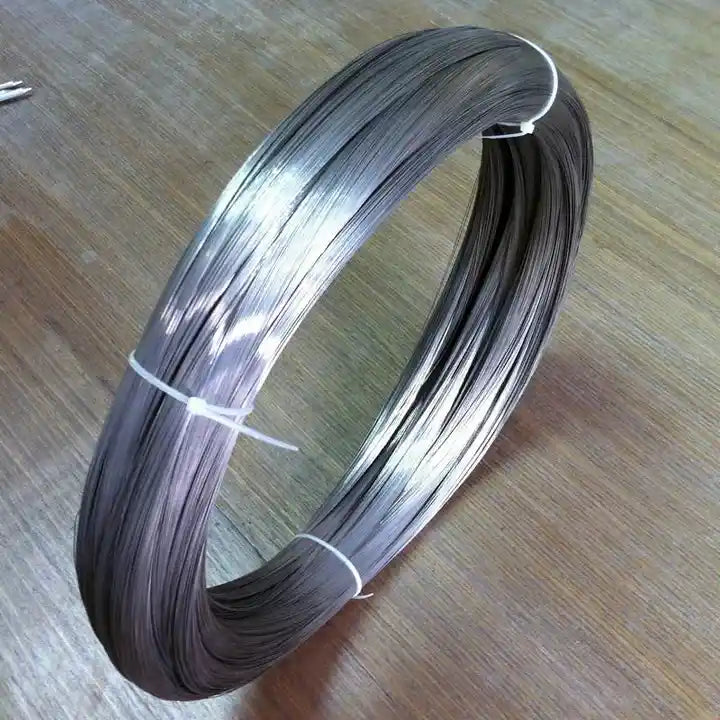420 stainless steel soft wire
420 stainless steel soft wire
Contact form
Alloy 420 is a martensitic stainless steel that offers good corrosion resistance, similar to Alloy 410, while providing increased strength and hardness. It retains magnetic properties in both annealed and hardened states, with peak corrosion resistance achieved only when fully hardened. This makes 420 stainless steel soft wire a versatile choice for various demanding applications.
Applications of Stainless Steel Soft Wire
The durability and corrosion-resistant properties of 420 stainless steel soft wire make it suitable for several specialized applications, including:
- Cutlery
- Surgical and dental instruments
- Firearm parts
- Scissors
- Tapes
- Straight edges
Chemical Composition
The typical chemistry of 420 stainless steel soft wire is as follows:
- Carbon: 0.30-0.40%
- Manganese: 1.00% max
- Silicon: 1.00% max
- Chromium: 12.00-14.00%
- Nickel: 0.50% max
- Molybdenum: 0.50% max
- Phosphorus: 0.040% max
- Sulfur: 0.030% max
- Copper: 0.50% max
- Aluminum: 0.15% max
- Tin: 0.050% max
- Iron: Balance
Physical Properties of 420 Stainless Steel Soft Wire
- Density: 0.28 lbs/in³ (7.74 g/cm³)
- Electrical Resistivity: 21.71 microhm-in (55.0 microhm-cm) at 68°F (20°C)
- Specific Heat: 0.11 BTU/lb/°F (0.46 kJ/kg•K) from 32-212°F (0-100°C)
-
Thermal Conductivity:
- At 212°F (100°C): 14.4 BTU/hr/ft²/ft/°F (24.9 W/m•K)
- At 932°F (500°C): 16.6 BTU/hr/ft²/ft/°F (28.7 W/m•K)
-
Mean Coefficient of Thermal Expansion:
- 32-212°F (0-100°C): 5.7 x 10⁻⁶ in/in/°F (10.2 μm/m•K)
- 32-1200°F (0-649°C): 6.8 x 10⁻⁶ in/in/°F (12.1 μm/m•K)
- Modulus of Elasticity: 29.0 x 10³ KSI (200 x 10³ MPa) in tension
- Magnetic Permeability: Magnetic
- Melting Range: 2723°F (1495°C)
With its balance of strength, corrosion resistance, and machinability, 420 stainless steel soft wire remains a reliable choice in numerous industrial and consumer applications.
Share


